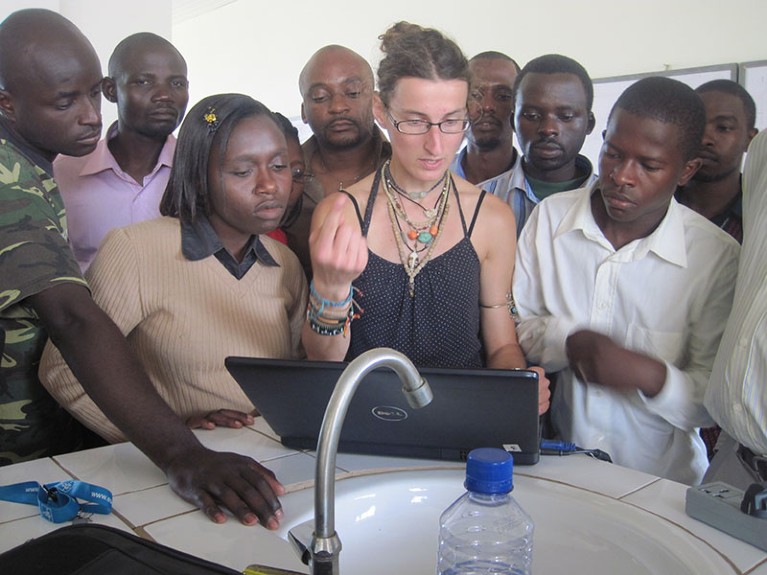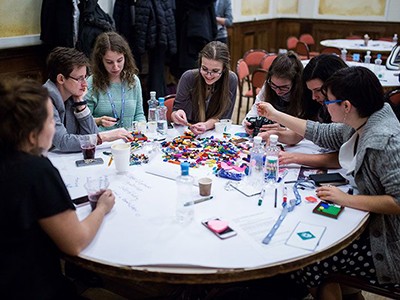
Astrophysicist Mirjana Pović has taught science to orphans in Rwanda, helped to organize a supportive community for women with HIV in Tanzania and contributed to space research in Africa. She has excelled in her own research at the Ethiopian Space Science and Technology Institute in Addis Ababa and the Institute of Astrophysics of Andalusia in Granada, Spain. For these endeavours, she won Nature Research’s inaugural Inspiring Science Award, one of two prizes developed in partnership with The Estée Lauder Companies. She impressed judges with the depth and breadth of her efforts to encourage women and girls in science, says Magdalena Skipper, chief editorial adviser of Nature Research, editor-in-chief of Nature in London and chief judge of the awards.
What is your background?
My family in Serbia was poor, and my country was at war as I was growing up. I would never have been able to pursue science without my family’s encouragement, a free university education and a scholarship for my PhD. Children from poor and developing countries should know that their lives can change, but it’s not enough that they work hard. It’s fundamental to have support from society. Access to education is the first step.
What sort of research do you do?
I’m trying to understand how galaxies form, and how they evolve over cosmic time. In particular, there are galaxies with what we call active galactic nuclei in their centres. These are some of the most luminous sources of light in the Universe.
Hungarian association wins prize for promoting participation of women in science
What draws you to Africa?
I am amazed by Africa’s beauty and diversity, but I am disturbed by the inequalities between much of it and the developed world. During my PhD, I went for the first time to volunteer in Tanzania and Kenya. I was quite affected by the experience. After working in South Africa and Spain, I was invited to help establish the Space Science and Technology Institute here in Ethiopia.
What are the barriers to science for African women?
They face the same challenges as women in science worldwide, but multiplied. They lack female role models. They often don’t get support from their families to pursue science. These issues are compounded by poverty. Fewer girls than boys finish primary or secondary school or have the opportunity to go to university, and many family responsibilities still fall on women.
How do you aim to lower those barriers?
In collaboration with the Society of Ethiopian Women in Science and Technology, I’m starting regular science talks for secondary-school girls to motivate them to do science. Women will speak about their fields, how to become a scientist, challenges they have faced and the life of a scientist. Of course, these talks cannot change poverty. But even if some girls cannot benefit fully from these talks today, they can get information that could help them and their children in the future.
What else are you doing?
Another project is to build a network of African women in astronomy and space science. In many African countries, there has been a lot of effort recently to develop astronomy and space science. It’s important that young women have a safe space in which to share experiences, knowledge and career opportunities. I would also like to track how many women who are completing master’s degrees go on to a PhD, and how many who finish a PhD remain in science.
Do you have advice for female researchers?
Interact as much as possible with other women in science, especially the senior ones, who can provide support and knowledge. In your path as a scientist, there will be many challenges and problems. Taking these contemplatively, and seeing them as a source of knowledge and experience, will help you to find the best solution.

 Hungarian association wins prize for promoting participation of women in science
Hungarian association wins prize for promoting participation of women in science
 Paths to success for African scientists
Paths to success for African scientists
 Astronomy is losing women three times faster than men
Astronomy is losing women three times faster than men
 The potential of astronomy for socioeconomic development in Africa
The potential of astronomy for socioeconomic development in Africa








